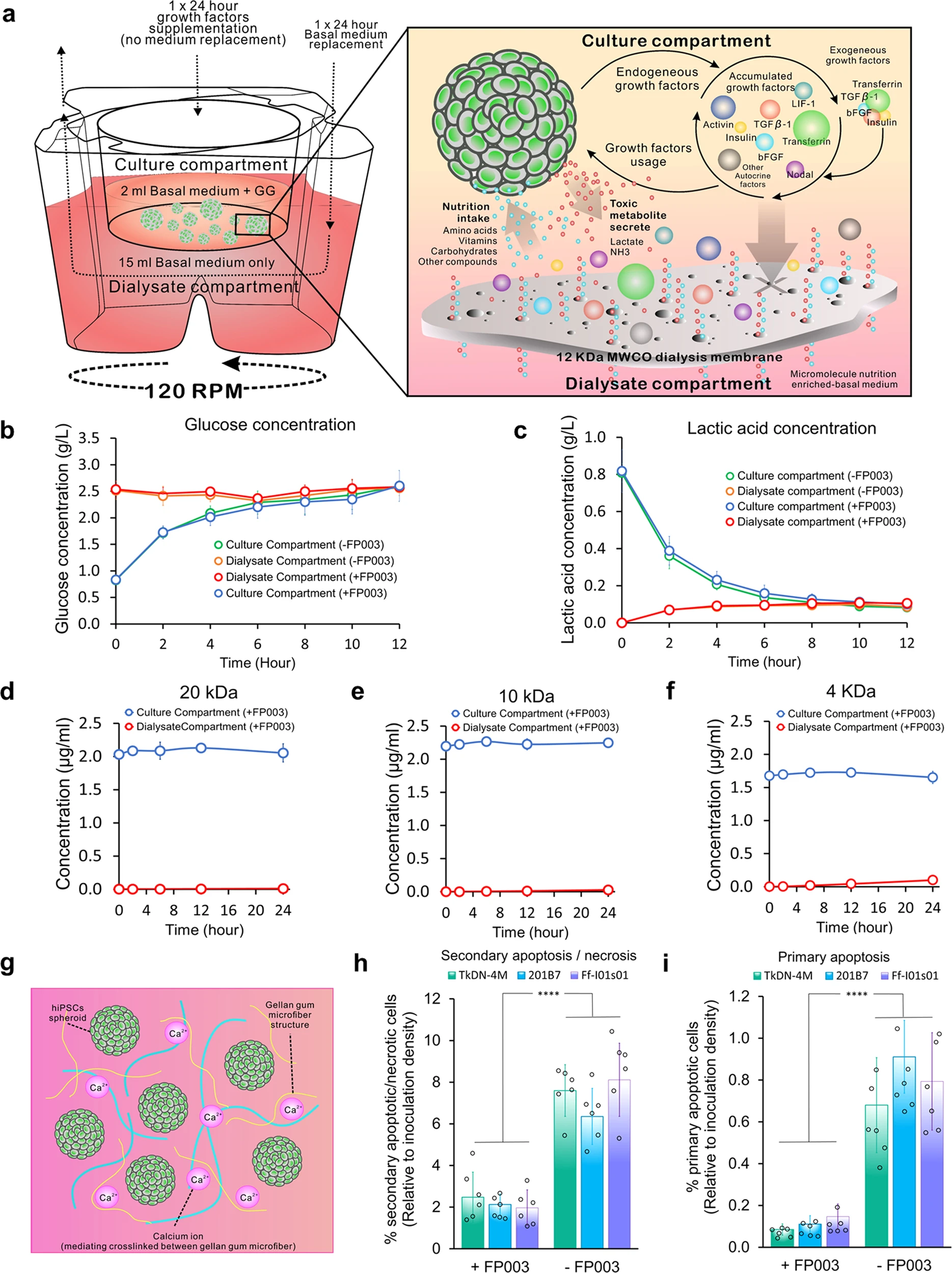
The University of Tokyo: Culture of undifferentiated human iPS cells: Succeeded in ultra-high density
-Culture cost per cell reduced to 1/8-
University of Tokyo Graduate School
Professor Yasuyuki Sakai
The research group
In collaboration with Kaneka and Nissan Chemical
The cost of undifferentiated proliferation of human iPS cells,
We have developed a small-scale culture system that reduces to 1/8.
Small culture system:
It has “two upper and lower spaces separated by a dialysis membrane”, and cells are cultured on the upper part.
Store growth factors there and
Nutrients and waste products can travel to and from the bottom.
By “adding polysaccharides here”, the growth density could be increased eight times as much as before.
Price of iPS Cell Growth Factor:
iPS cells are highly expected in regenerative medicine.
However, the price of iPS cell growth factor is high.
That is. It is a bottleneck for the mass proliferation of undifferentiated cells.
Culture method using dialysis membrane:
However, the growth density is low and cost reduction has not been realized.
Research group new method:
It has a structure that can fully use expensive growth factors.
Results of cell culture experiments:
As “a manifestation of self-organizing ability” from iPS cells
The concentration of the growth factor “Nordal” secreted by iPS cells is
A phenomenon that increased with culturing was observed.
This led to a large amount of cell culture.
Induction of differentiation into organ cells:
In the future, we will promote higher density of cell culture.
For “induction of differentiation into organ cells, which costs several tens of times”,
“Examine whether this method works effectively”.
Already unpublished,
In “the first stage of liver and islet differentiation (endoderm differentiation)”
We succeeded in “reducing the amount of growth factors used to about 1/8”.
TechCrunch Japan
https://jp.techcrunch.com/2021/11/24/tokyo-univ-ips-cell-high-density-cultivation/
A miniature dialysis-culture device allows high-density human-induced pluripotent stem cells expansion from growth factor accumulation
Communications Biology
Abstract
Three-dimensional aggregate-suspension culture
is a potential biomanufacturing method to produce a large number of human induced pluripotent stem cells (hiPSCs);
however,
the use of expensive growth factors and method-induced mechanical stresspotentially result in inefficient production costs and difficulties in preserving pluripotency, respectively.
Here,
we developed a simple, miniaturized, dual-compartment dialysis-culture device based on a conventional membrane-culture insert with deep well plates.The device improved cell expansion up to approximately ~3.2 to 4×107 cells/mL.
The high-density expansion
was supported by reduction of excessive shear stress and agglomeration mediated by the addition of the functional polymer FP003.The results revealed accumulation of several growth factors,
including fibroblast growth factor 2 and insulin, along with endogenous Nodal, which acts as a substitute for depleted transforming growth factor-β1 in maintaining pluripotency.
Because we used the same growth-factor formulation per volume in the upper culture compartment,
the cost reduced in inverse proportional manner with the cell density.
We showed that
growth-factor-accumulation dynamics in a low-shear-stress environment successfully improved hiPSC proliferation, pluripotency, and differentiation potential.This miniaturised dialysis-culture system
demonstrated the feasibility of cost-effective mass production of hiPSCs in high-density culture.